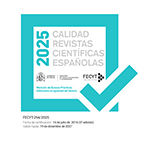Lachen nach dem Holocaust: Humor und Versöhnung in Michel Bergmanns "Teilacher-Trilogie"
Résumé
Michel Bergmann vermittelt in seiner Trilogie einen generationenübergreifenden retrospektiven Blick auf die deutsche Nachkriegszeit und auf den Alltag der in Deutschland lebenden Juden. Die Romane zeigen die herausragende Rolle des Humors beim Erinnern an die traumatische Vergangenheit und ebenso für die Lösung der Schwierigkeiten, auf die die Überlebenden in ihrer als fremd wahrgenommenen Umgebung stießen. Aus dem Buch geht hervor, dass der Humor zu einem unerlässlichen Mittel zur Traumabewältigung wird, sodass er eine soziale (Wieder-)Eingliederung der Hauptfiguren in Deutschland begünstigt, zu der auch die ab den 50er Jahren spürbare wirtschaftliche Verbesserung beiträgt. Ihr Leben in der Bundesrepublik bringt eine beginnende Versöhnung mit der Gesellschaft der ehemaligen Feinde mit sich. Sie wird im Wesentlichen auf zweierlei Art gefördert: Einerseits durch die Entstehung von neuen Liebesbeziehungen zwischen Holocaustüberlebenden und (nichtjüdischen) Deutschen; andererseits infolge der von einigen jüdischen Figuren empfundenen Dankbarkeit gegenüber denjenigen, die während des Holocaust ihr Überleben im Untergrund ermöglicht hatten.
Téléchargements
##submission.format##
Licence
La Revista de Filología Alemana, para fomentar el intercambio global del conocimiento, facilita el acceso sin restricciones a sus contenidos desde el momento de su publicación en la presente edición electrónica, y por eso es una revista de acceso abierto. Los originales publicados en esta revista son propiedad de la Universidad Complutense de Madrid y es obligatorio citar su procedencia en cualquier reproducción total o parcial. Todos los contenidos se distribuyen bajo una licencia de uso y distribución Creative Commons Reconocimiento 4.0 (CC BY 4.0). Esta circunstancia ha de hacerse constar expresamente de esta forma cuando sea necesario. Puede consultar la versión informativa y el texto legal de la licencia.










